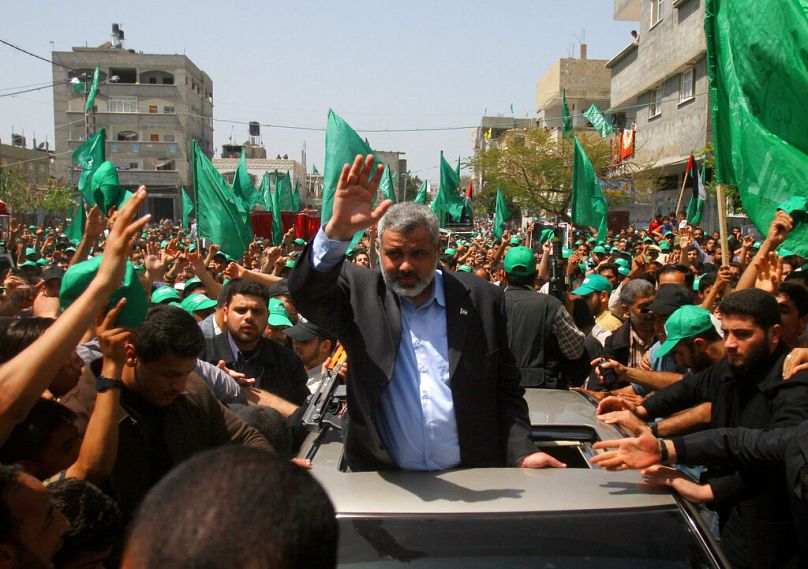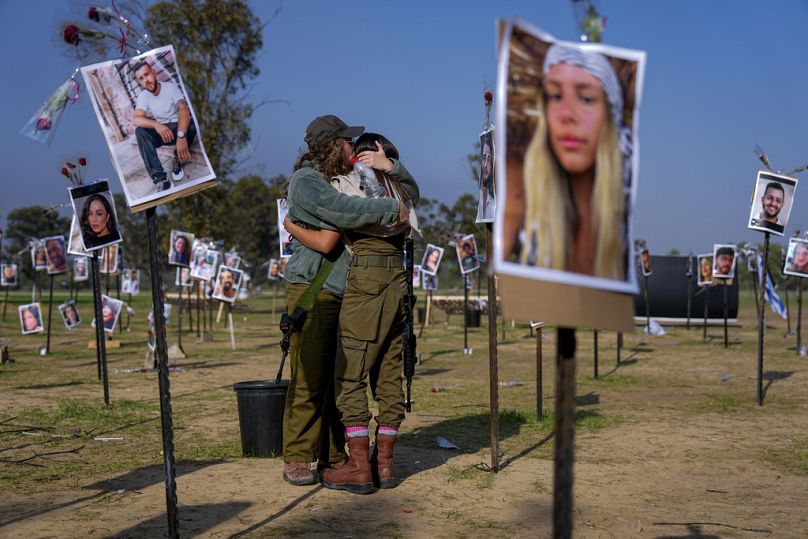Hamas’ rule in Gaza may end due to its own strategic miscalculation, but the real question is what happens after, Shlomo Roiter Jesner writes.
On 7 October, Hamas militants shocked Israel and the world by perpetrating an act of terrorism deadly enough to be considered the worst act of violence against Jews since the Holocaust.
The depravity of the violence, which saw over 240 hostages taken and around 1,200 civilians murdered, provoked an Israeli military response more powerful than anything the decision-making ranks of Hamas would have anticipated, revealing the gravity of the strategic miscalculation made by the extremist group.
Although Hamas’ rule in Gaza was never Israel’s preference, it was seen by many as the best of the bad options available.
The 7 October events changed that strategic calculus completely, with Israel, the US and many European allies now concurring that the continuation of Hamas’ rule in Gaza is indeed untenable in the long term for both Israel and the region.
Following the 7 October attack, Israeli Prime Minister Benjamin Netanyahu released a rare statement in which he clarified that “Hamas has started a brutal and evil war … What happened today is unprecedented in Israel, and I will see to it that it does not happen again.”
The status quo since 2006 to change once and for all?
This was far from the first skirmish with Hamas, which has historically seen a relatively small-scale flare-up with Israel every few months surrounding one issue or another.
The last of these was Operation Shield and Arrow in May, which saw Israel assassinating three senior Palestinian Islamic Jihad militants, followed by rocket fire from Gaza and a targeted limited Israeli retaliation. These exchanges have traditionally ended with a settlement in which the baseline was that Hamas remain in power.
The difference now is the extent to which the Netanyahu government feels compelled to underscore that Hamas extremists governing Gaza is an unacceptable arrangement, which after being the status quo since 2006, must now change once and for all.
In 2005, Israel withdrew from Gaza, removing 8,000 Israeli citizens who resided there in 21 settlements. A remaining 3,000 Israeli troops were removed gradually, following the eviction of its settlers, with the Israeli disengagement leaving Fatah in control of the Gaza Strip, led by Palestinian President Mahmoud Abbas and Prime Minister Ahmed Qurei.
In 2006, however, Hamas came to power in the last Palestinian election to date, which saw it violently seizing complete control of Gaza from the Palestinian Authority (PA).
Small-scale conflicts and Israel’s default acceptance of Hamas’ control of Gaza suggested the existence of an equilibrium; Israel refrained from large-scale military operations and Hamas did not commit atrocities on the scale of 7 October.
That uneasy equilibrium was shattered by Hamas’ strategic miscalculation, a move which has ended the Israeli and international acquiescence towards Hamas’ rule and which may well culminate in the return of the PA to Gaza in one form or another.
Meanwhile, Iran and its proxies left Hamas out to dry
A primary component of Hamas’ mistake was its reliance on support from Iran and specifically its regional proxies, Hezbollah in Lebanon and the Houthis in Yemen.
While the early days of the war saw a big question mark regarding the support which Hamas could expect, the extent of Israel’s response, alongside a firm actionable response from Washington and European allies, made it clear that despite perhaps assurances received to the contrary, Iran had no intention of putting its meticulously constructed forward forces at risk.
Immediately following the attacks, US Defence Secretary Lloyd Austin ordered a carrier strike group to the Mediterranean led by the USS Gerald R Ford, the largest aircraft carrier in the world, intending to deter opportunistic actions by Iran.
Despite this, Hezbollah could not stand by idly leading to the firing of missiles towards northern Israel, and even reports of attempted infiltrations from the air.
The response from Lebanon was very clearly carefully thought out, however, and despite the hundreds of thousands of missiles which Hezbollah reportedly has on Israel’s northern border, the scope of every individual attack or response was such that they could not be expected to draw Israel into a full-fledged conflict.
Make no mistake. Hezbollah’s decision not to open an additional front on Israel’s northern border was no accident and certainly was not the product of restraint.
Had it wanted to, Tehran could have easily escalated the situation with the help of the proxies it has carefully been rebuilding since the 2006 Second Lebanon War with Israel.
Rather, understanding the leeway in its response that Israel was being granted by the international community, and particularly the US, which finds itself amidst election season and therefore more careful to decisions that could be perceived as not “pro-Israel”, led the powers that be to decide otherwise.
That the status quo which has been in effect since 2006 cannot continue is now evident to all parties involved.
Proposed solutions are optimistic at best, naive at worst
Although optimism regarding the war’s end was expressed in light of a Qatar-negotiated ceasefire, which saw the release of some of the Israeli civilians held by Hamas in exchange for Palestinian security prisoners, the war itself is far from over, and indicatively, the discussion has already turned to the question of Gaza after Hamas.
Some have suggested a transition period in which Gaza would be in the hands of a United Nations-led international body, whilst it rebuilds its infrastructure and public services after fifteen years of Hamas neglect, before passing control of Gaza back to the PA.
This idea is unrealistic for many reasons, primary among which is the inability to rely on the UN to ensure the security situation remains stable, particularly in light of how Hezbollah has managed to build itself up in Lebanon under the watchful eye of the United Nations Interim Force in Lebanon (UNIFIL).
Others claim that this post-Hamas scenario presents an opportunity for Israel and the PA to return to the negotiation table and explore a peace process of sorts and even a return to the two-state solution.
This view has been shared in Israel by policymakers such as Opposition Leader Yair Lapid, who argued domestically that, “in the end, the best thing is that the Palestinian Authority goes back into Gaza … It’s not ideal, and if you ask me what the exit strategy should be, it should be helping the international community help [the PA take control]”.
The lack of leadership in the ranks of the PA (President Abbas is 88 and ill, with no apparent successor) combined with no domestic legitimacy among Palestinians themselves, makes this perspective optimistic at best.
Netanyahu's future is uncertain, too
Aside from promising the end to Hamas’s rule of Gaza, and despite the opportunity presented by Hamas’ gross miscalculation, Netanyahu and his government have yet to clarify a cohesive vision for Gaza post-Hamas.
Taken aback by the attack on 7 October which saw Israel’s seemingly impenetrable border security bypassed with ease, the Netanyahu government can no longer simply ensure its longevity by promising Israeli citizens “security”.
And while it is almost all but certain that Netanyahu will soon find himself ousted from the Likud leadership, as soon as the security situation finds itself stable enough for a party leadership race, it is far from clear that the incumbent Israeli government has any sort of idea at all what will happen to it, let alone what follows the inevitable demise of Hamas’ rule in Gaza.
Shlomo Roiter Jesner is the president and co-founder of the Cambridge Middle East and North Africa Forum. He is also the CEO of London-based F&R Strategy Group, a geopolitical consultancy at the intersection of politics and business.
At Euronews, we believe all views matter. Contact us at view@euronews.com to send pitches or submissions and be part of the conversation.














